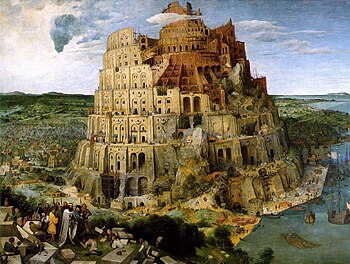 In the English-speaking world we have become used to international
business being conducted in our cradle language, which makes things very
easy for us. It is not so in the Church, because of the importance of
French, German, and Italian, from the perspective of the Vatican.
English has not replaced Latin as a common language (not that it should);
instead we have something alarmingly like the Tower of Babel, where not
one language - Latin - is essential for a curial official who wants to be on the button, but three or four.
In the English-speaking world we have become used to international
business being conducted in our cradle language, which makes things very
easy for us. It is not so in the Church, because of the importance of
French, German, and Italian, from the perspective of the Vatican.
English has not replaced Latin as a common language (not that it should);
instead we have something alarmingly like the Tower of Babel, where not
one language - Latin - is essential for a curial official who wants to be on the button, but three or four.It is said that the Catechism of the Catholic Church was first composed in French. Other documents are prepared in Italian or German. In each case, if it is an official Church document (as opposed to a sermon or allocution) it is translated into Latin, and this Latin translation is then the official version. Other languages are translations of the Latin, and even the original one must conform to the Latin. This gives not one but two opportunities for translators to put a little spin on the meaning of the text, and if the people who prepared the original in some vernacular language are not very on the ball, and very good Latinists, what they agreed could end up being seriously distorted.
I don't know if the Catechism (for example) suffered in going from French to Latin, but a great many documents suffer going from Latin to English and other languages: as I have noted on this blog, this has happened again and again and again. Even if the Vatican's translators had no axe to grind (and it is hard to resist the impression that they prefer liberal formulations), a gap between the meaning of the original text and a translation is inevitable.
How the use of multiple vernaculars is supposed to be easier for the transaction of the Church's business, than the use of Latin, is a mystery. But even at its best, this is a situation in which we are cut off from the past, from what the doctors and saints want to say us, and what we so desperately need to hear.
No comments:
Post a Comment